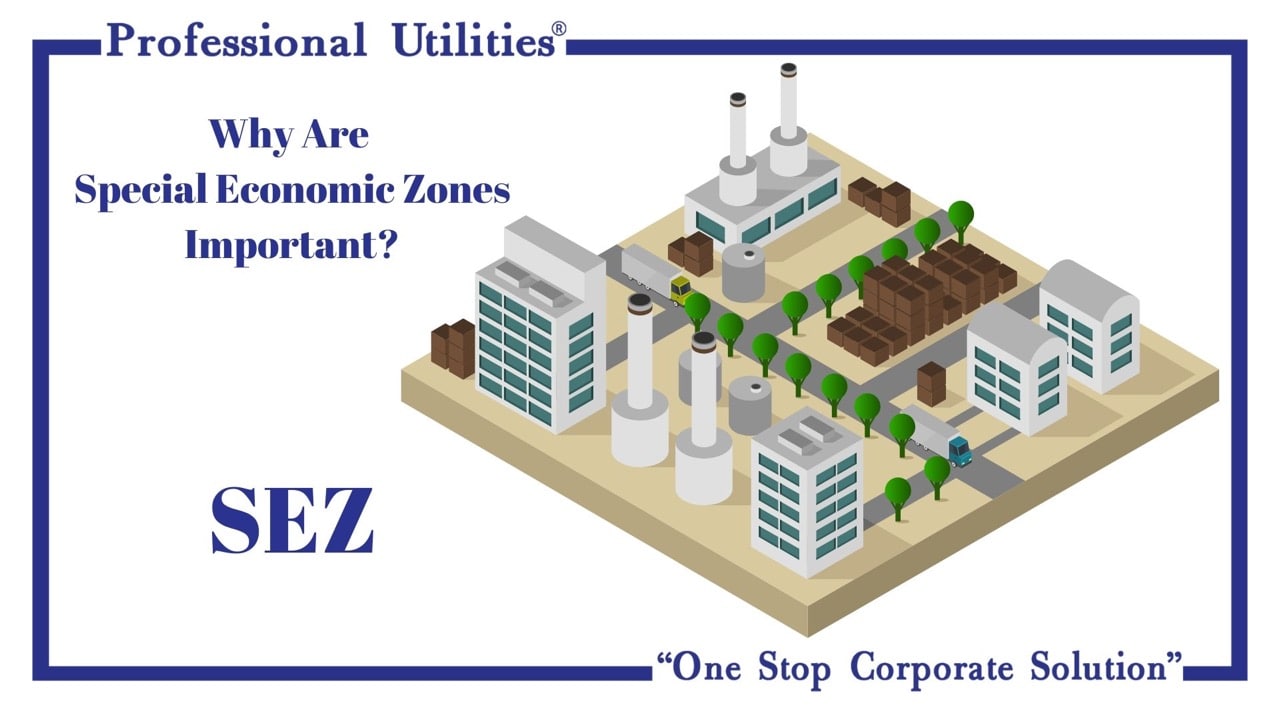
Why are Special Economic Zones important?
Special Economic Zones (SEZ) in India is a specially delimited enclave. Most importantly, the economic laws in this geographical area are different from the prevailing laws in other parts of India. An SEZ is deemed as a foreign territory for matters that relate to the trade tariffs, duties, and operations.
Moreover, the SEZ Act of 2005 governs all the regulatory and legal aspects related to the development of SEZs and also regarding operations of units under SEZs.
What are the benefits of special economic zones for a country?
A country has many benefits by the set up of Special Economic Zones inside its territorial limits. Some of these are as follows:
- Special Economic Zones promote exports of goods and services
- SEZs generate employment opportunities for the population
- Special Economic Zones can develop infrastructure facilities
- SEZs can provide, in a concentrated area, the necessary conditions external investors may require. Moreover, these may include a skilled labor force, adequate infrastructure, and local input suppliers. Additionally, they can facilitate investment from foreign sources
- Additionally, a well-executed SEZ helps generate spill-overs for the economy of the rest of the country. This is because domestic firms and industries outside an SEZ tend to upskill and expand, to be able to supply the SEZ firms.
- SEZs can play the role of ‘testing grounds’ for the Government for implementing liberal business policies in the future. Likewise, the Government can decide to implement ‘successful’ policies across the country and dump the ‘unsuccessful’ ones.
What are the benefits of registering a company in Special Economic Zones?
Some of the distinct advantages of registering a company in Special Economic Zones in India are as follows:
- As per Section 10 AA of the Income Tax Act, companies registration in an SEZ gives a corporate tax holiday on export income for 15 years- 100 % for the first 5 years, 50% for the next 5 years and 50% of the reinvested profit for the remaining 5 years.
- Such companies offer exemptions from Service Tax and Central Sales Tax. Concerned State Governments may also offer exemptions from State Sales tax
- An exemption provides from customs duty to import raw materials, capital goods, consumable spares and so on
- An exemption is provided from Central Excise Duty for procuring raw materials, consumable spares, and capital goods, etc from the domestic market
- Single-window clearance will extend to these companies for necessary approvals from the Central and State Governments.
Special Economic Zones in India
A Special Economic Zones or SEZ is an area where the trade and business laws are non-identical to and more liberal than similar laws prevailing in other parts of a country. Likewise, as a first initiative towards setting up SEZs in India, the Special Economic Zone policy came into existence from 1st April 2000.
Firstly, the primary objective of this policy was to increase foreign investment in India and to facilitate a globally competitive, yet conducive environment for exports. Later on, legislation was duly passed which allowed SEZs to provide tax breaks to the foreign investors. However, over the years, it was felt that these policies did not quite meet their objectives, owing to certain pitfalls and important omissions.
Moreover, the Special Economic Zone Act of 2005 looked to remove these drawbacks and wanted to provide a stable and long-term policy framework to businesses, with minimum regulations. This Act covers all regulatory and legal aspects related to the development of SEZs and also regarding units operating under SEZs.
Moreover, as mentioned in the SEZ Act of 2005, a Special Economic Zone (SEZ) in India is a specially delimited and duty-free enclave. Likewise, an SEZ will be deemed as a foreign territory for matters related to trade tariffs, duties, and operations. The economic laws in this geographical area are different from the prevailing laws in other parts of India.
Objectives of the SEZ Act, 2005
For instance, here are the primary objectives of the SEZ Act are as follows:
- Firstly, to generate additional economic activity
- Secondly, to promote exports of services and goods
- Meanwhile, to promote investment from foreign and domestic sources
- Additionally, to create employment opportunities
- Further, to develop infrastructure facilities
What are the Special Economic Zones in India
Subsequently, as of 20th February 2020, as many as 354 SEZs have been notified in different parts of India under the Special Economic Zone (SEZ) Act of 2005. Additionally, the state-wise distribution of notified SEZs is given below:
Latest Due Date Update
The due date to file GSTR-3B for January, February and March 2020 is revised as follows:
| Sl no | State/Union Territory | Notified SEZs |
|---|---|---|
| 1 | Andhra Pradesh | 27 |
| 2 | Chandigarh | 2 |
| 3 | Chhattisgarh | 1 |
| 4 | Goa | 3 |
| 5 | Gujarat | 22 |
| 6 | Haryana | 20 |
| 7 | Jharkhand | 2 |
| 8 | Karnataka | 52 |
| 9 | Kerala | 25 |
| 10 | Madhya Pradesh | 7 |
| 11 | Maharashtra | 44 |
| 12 | Manipur | 1 |
| 13 | Nagaland | 2 |
| 14 | Odisha | 5 |
| 15 | Punjab | 3 |
| 16 | Rajasthan | 4 |
| 17 | Tamil Nadu | 52 |
| 18 | Telangana | 56 |
| 19 | Tripura | 1 |
| 19 | Uttar Pradesh | 20 |
| 20 | West Bengal | 5 |
| - | Total | 354 |
Why Professional Utilities?
At Professional Utilities, we leverage our industry knowledge and expertise to help businesses navigate complex regulations, minimize risks, and optimize operations for maximum efficiency and profitability.

One Stop Corporate Solution

PAN India
Services

Free Expert
Assistance

Google Verified
Business

Dedicated Support
Staff


.svg)







